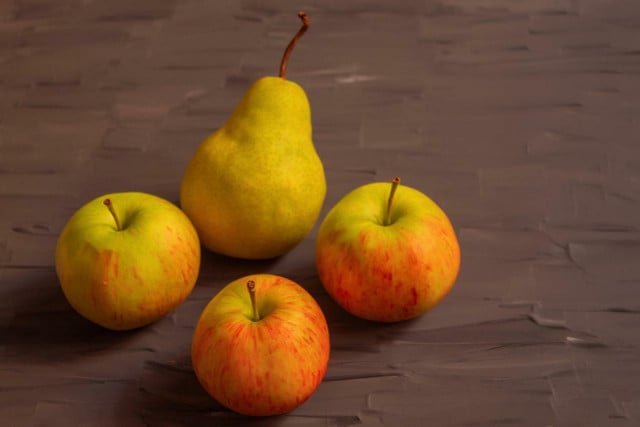
Cherries cause stomach ache – at least according to a folk wisdom that many people probably know from their childhood. Here you can find out what science says about this and what you should consider when eating cherries.
Cherry season in Germany runs from June to August. Then you can buy the sweet little fruits from regional cultivation or snack directly from the tree. But according to advice from parents and grandparents, we should never eat too many cherries and also not consume the fruit with water – otherwise there will be gastrointestinal problems.
But how much truth is there in this folk wisdom? Can Cherries Really Cause Stomachache?
Cherries and stomach ache: what’s the point of folk wisdom?
The fact that cherries cause stomach ache is actually not entirely out of thin air. The Federal Center for Nutrition (BZfE) cites several reasons for this phenomenon: Yeast fungi sit on the skin of the cherries. In our body then meet the contained fructose in the cherries and the yeast mushrooms on top of each other.
Especially when you have consumed large amounts of the popular stone fruit, it is easy for the mushrooms to ferment the sugar into alcohol. This process produces carbon dioxide as a by-product. This can to gas and cause abdominal pain. If you then also drank water, the flatulence may be particularly strong. Because the water causes the stomach acid to dilute and kill the fungi less efficiently.
According to another theory, the main effect of the water is that the cherries pass through the stomach more quickly and thus reach the intestines directly. Fermentation processes then take place in the intestines, which can also lead to flatulence and abdominal pain.
According to the BZfE, there is probably another reason why older generations in particular warn against the combination of cherries and water: the quality of drinking water used to be significantly worse. At that time, the water caused stomach problems even without cherries due to the germs it contained. So today you don’t have to worry anymore. Because you can drink tap water in Germany without hesitation. You can find out more about this here: Tap water in Germany: can you drink it without hesitation?
Cherries and stomach ache: How to avoid stomach problems

(Photo: CC0 / Pixabay / Anrita1705)
To prevent stomach aches after eating cherries, you should wash the fruit well before eating. This is how you rinse off some yeast fungi. More about this here: Washing fruit properly: what to do about pesticides on the skin?
Also, be careful not to eat too many fruits at once. In this way you ensure that you do not ingest too much fructose, which is then broken down in the stomach or intestines, releasing gases.
But now you have a whole tree full of cherries in the garden and you don’t want them to rot unused in the garden? You can leave some of the fruit to the birds, which may visit your garden as a food source. You can preserve the remaining fruit by boiling or freezing it. Or you process them into jelly or syrup. You can find out more about this in these articles:
- Freeze cherries
- Boil cherries
- Make your own cherry syrup
- Make your own cherry jelly
Another cause: fructose intolerance

(Photo: CC0 / Pixabay / misskursovie2013)
The fact that cherries cause stomach ache can also have other reasons for some people. If you also suffer from abdominal pain, a feeling of fullness or diarrhea after eating other types of fruit, you could be suffering from a condition known as fructose malabsorption. This intolerance is also known as fructose intolerance.
It is present when your body cannot absorb and process fructose at all or not completely in the small intestine. Then most of the fructose gets directly into the large intestine. There, intestinal bacteria break it down and produce a lot of gases in the process.
Whether you really suffer from fruto intolerance is best clarified with the help of a doctor. Nutritional advice can also help you. You can find out more about this here: Fructose intolerance: symptoms, causes and treatment of intolerance.
This text was created with dpa material.
Read more on Techzle.com:
- Stone cherries: 4 ways with instructions
- Low-sugar fruit: an overview
- Bloated stomach: These home remedies help with flatulence